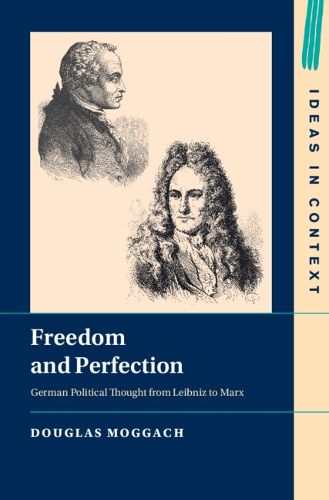Readings Newsletter
Become a Readings Member to make your shopping experience even easier.
Sign in or sign up for free!
You’re not far away from qualifying for FREE standard shipping within Australia
You’ve qualified for FREE standard shipping within Australia
The cart is loading…






Leibniz, this study argues, is the genuine initiator of German Idealism. His analysis of freedom as spontaneity and the relations he establishes among freedom, justice, and progress underlie Kant's ideas of rightful interaction and his critiques of Enlightened absolutism. Freedom and Perfection offers a historical examination of perfectionism, its political implications and transformations in German thought between 1650 and 1850. Douglas Moggach demonstrates how Kant's followers elaborated a new ethical-political approach, 'post-Kantian perfectionism', which, in the context of the French Revolution, promoted the conditions for free activity rather than state-directed happiness. Hegel, the Hegelian School, and Marx developed this approach further with reference to the historical process as the history of freedom. Highlighting the decisive importance of Leibniz for subsequent theorists of the state, society, and economy, Freedom and Perfection offers a new interpretation of important schools of modern thought and a vantage point for contemporary political debates.
$9.00 standard shipping within Australia
FREE standard shipping within Australia for orders over $100.00
Express & International shipping calculated at checkout
Leibniz, this study argues, is the genuine initiator of German Idealism. His analysis of freedom as spontaneity and the relations he establishes among freedom, justice, and progress underlie Kant's ideas of rightful interaction and his critiques of Enlightened absolutism. Freedom and Perfection offers a historical examination of perfectionism, its political implications and transformations in German thought between 1650 and 1850. Douglas Moggach demonstrates how Kant's followers elaborated a new ethical-political approach, 'post-Kantian perfectionism', which, in the context of the French Revolution, promoted the conditions for free activity rather than state-directed happiness. Hegel, the Hegelian School, and Marx developed this approach further with reference to the historical process as the history of freedom. Highlighting the decisive importance of Leibniz for subsequent theorists of the state, society, and economy, Freedom and Perfection offers a new interpretation of important schools of modern thought and a vantage point for contemporary political debates.